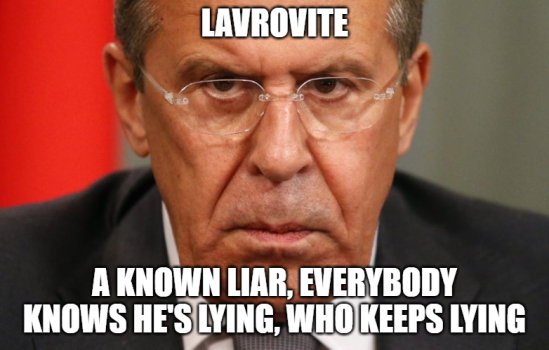It says to confess our faults one to another, not to confess our sins to a priest. Jesus is our confessor. Everything the Catholic church is distortion.
Confessing ones sins to one another is not the same as forgiveness of sins. The AUTHORITY to FORGIVE SINS rests with the Apostles, and by extension, their successors. Authority is GIVEN, not taken. And it is Christ Who does the forgiving THROUGH the Apostles and their successors in the Sacrament of Confession that He instituted in John 20:19-23.
Apostolic Authority is transferred by the laying on of hands. Christ gave His authority to teach, preach, sanctify and govern His Church to the Apostles. They, in turn, handed down this authority to their successors, the bishops. The bishops did likewise, down through the centuries. Every Catholic bishop's authority comes through a succession of bishops back to a particular Apostle, who got that authority from Christ.
Acts 1:15-26 – the first thing Peter does after Jesus ascends into heaven is implement apostolic succession. Matthias is ordained with full apostolic authority. Only the Catholic Church can demonstrate an unbroken apostolic lineage to the apostles in union with Peter through the sacrament of ordination and thereby claim to teach with Christ’s own authority.
Acts 1:20 – a successor of Judas is chosen. The authority of his office (his “bishopric”) is respected notwithstanding his egregious sin. The necessity to have apostolic succession in order for the Church to survive was understood by all. God never said, “I’ll give you leaders with authority for about 400 years, but after the Bible is compiled, you are all on your own.”
Acts 1:22 – literally, “one must be ordained” to be a witness with us of His resurrection. Apostolic ordination is required in order to teach with Christ’s authority.
Acts 6:6 – apostolic authority is transferred through the laying on of hands (ordination). This authority has transferred beyond the original twelve apostles as the Church has grown.
Acts 9:17-19 – even Paul, who was directly chosen by Christ, only becomes a minister after the laying on of hands by a bishop. This is a powerful proof-text for the necessity of sacramental ordination in order to be a legitimate successor of the apostles.
Acts 13:3 – apostolic authority is transferred through the laying on of hands (ordination). This authority must come from a Catholic bishop.
Acts 14:23 – the apostles and newly-ordained men appointed elders to have authority throughout the Church.
Acts 15:22-27 – preachers of the Word must be sent by the bishops in union with the Church. We must trace this authority to the apostles.
2 Cor. 1:21-22 – Paul writes that God has commissioned certain men and sealed them with the Holy Spirit as a guarantee.
Col 1:25 – Paul calls his position a divine “office.” An office has successors. It does not terminate at death. Or it’s not an office. See also Heb. 7:23 – an office continues with another successor after the previous office-holder’s death.
1 Tim. 3:1 – Paul uses the word “episcopoi” (bishop) which requires an office. Everyone understood that Paul’s use of episcopoi and office meant it would carry on after his death by those who would succeed him.
1 Tim. 4:14 – again, apostolic authority is transferred through the laying on of hands (ordination).
1 Tim. 5:22 – Paul urges Timothy to be careful in laying on the hands (ordaining others). The gift of authority is a reality and cannot be used indiscriminately.
2 Tim. 1:6 – Paul again reminds Timothy the unique gift of God that he received through the laying on of hands.
2 Tim. 4:1-6 – at end of Paul’s life, Paul charges Timothy with the office of his ministry . We must trace true apostolic lineage back to a Catholic bishop.
2 Tim. 2:2 – this verse shows God’s intention is to transfer authority to successors (here, Paul to Timothy to 3rd to 4th generation). It goes beyond the death of the apostles.
Titus 1:5; Luke 10:1 – the elders of the Church are appointed and hold authority. God has His children participate in Christ’s work.
1 John 4:6 – whoever knows God listens to us (the bishops and the successors to the apostles). This is the way we discern truth and error (not just by reading the Bible and interpreting it for ourselves).
Exodus 18:25-26 – Moses appoints various heads over the people of God. We see a hierarchy, a transfer of authority and succession.
Exodus 40:15 – the physical anointing shows that God intended a perpetual priesthood with an identifiable unbroken succession.
Numbers 3:3 – the sons of Aaron were formally “anointed” priests in “ordination” to minister in the priests’ “office.”
Numbers 16:40 – shows God’s intention of unbroken succession within His kingdom on earth. Unless a priest was ordained by Aaron and his descendants, he had no authority.
Numbers 27:18-20 – shows God’s intention that, through the “laying on of hands,” one is commissioned and has authority.
Deut. 34:9 – Moses laid hands upon Joshua, and because of this, Joshua was obeyed as successor, full of the spirit of wisdom.
Sirach 45:15 – Moses ordains Aaron and anoints him with oil. There is a transfer of authority through formal ordination.


